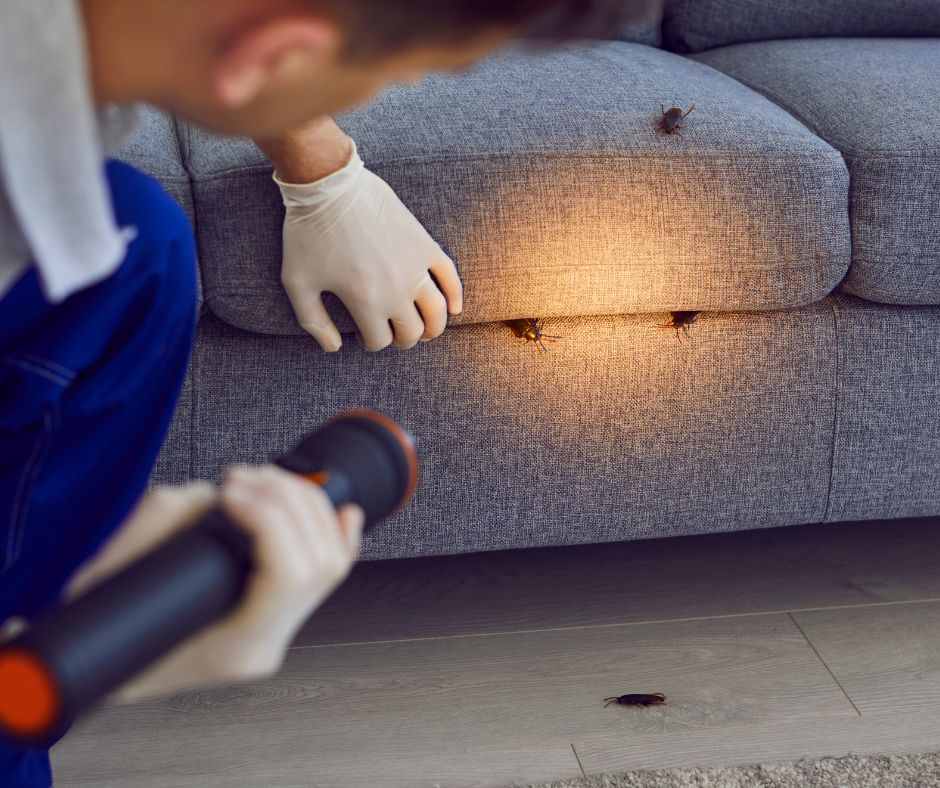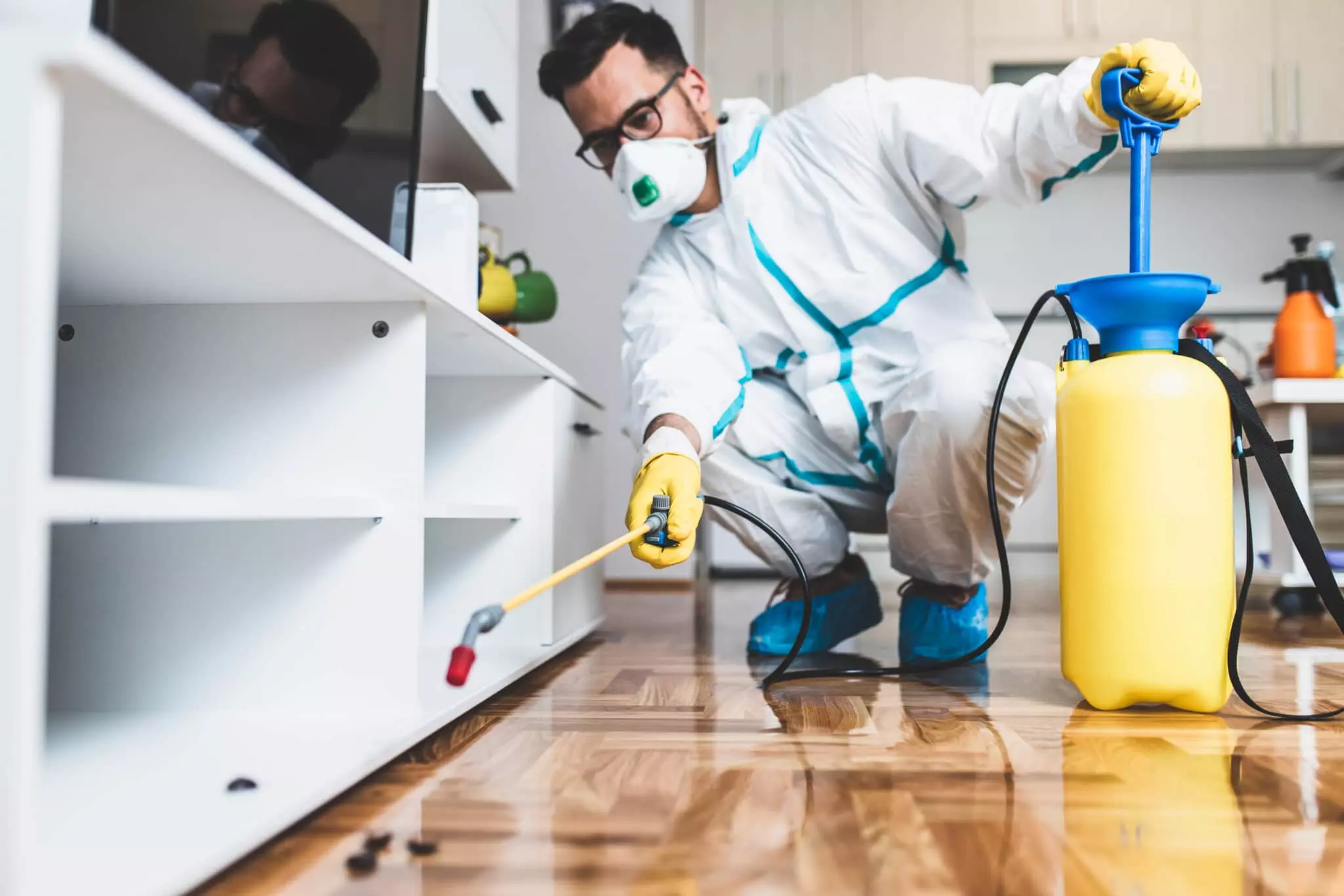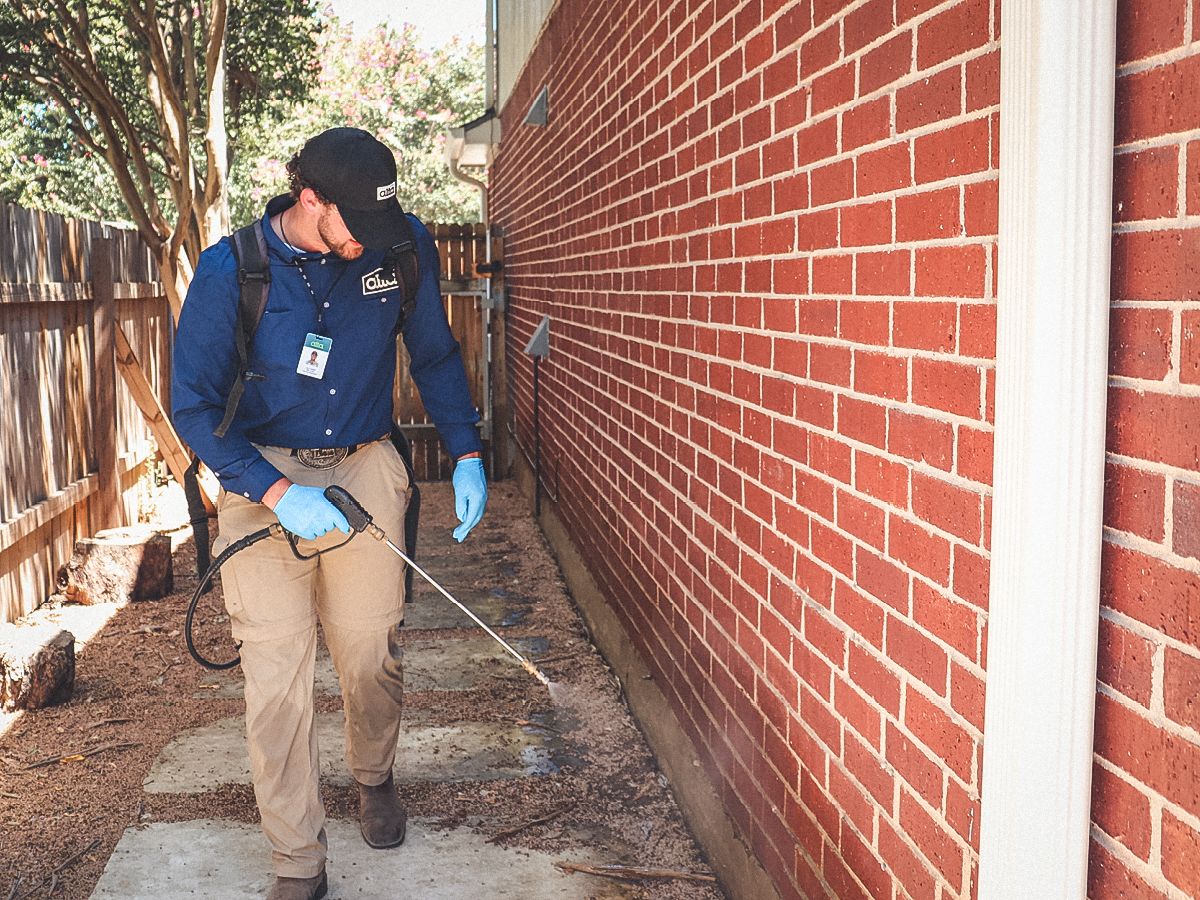Trusted Cockroach Exterminator Port Charlotte to Eliminate Infestations in Your Home
Learn About the most up to date Breakthroughs in Insect Control and How to Carry Out Effective Therapy Solutions
In recent years, the area of parasite control has actually experienced substantial improvements, driven by the need for sustainable and efficient treatment services. Innovative strategies such as Integrated Pest Monitoring (IPM) integrate green methods with cutting-edge innovation, boosting both efficacy and ecological responsibility.
Eco-Friendly Parasite Control Options
In current years, the demand for environment-friendly insect control choices has risen as property owners and companies alike seek sustainable alternatives to typical chemical treatments. This change is driven by growing environmental awareness and a wish to minimize the wellness risks related to artificial chemicals.

Green bug control approaches include a range of strategies that prioritize using natural substances and practices. Integrated Bug Management (IPM) is one such approach, incorporating organic, cultural, and mechanical techniques to manage insect populations while decreasing dependence on chemicals (Wildlife removal services). This holistic technique stresses avoidance via habitat adjustment and the intro of all-natural killers, consequently fostering a well balanced ecosystem
Another prominent choice is using agricultural chemicals acquired from plants, which tend to be much less unsafe to non-target microorganisms. Products like neem oil and diatomaceous planet have gained traction for their performance in controlling insects while posturing marginal threats to human health and wellness and the setting.
Furthermore, exemption methods, such as securing access points and maintaining sanitation, play a vital role in eco-friendly insect management. By embracing these lasting practices, people and organizations can properly manage insects while advertising a much healthier world for future generations.
Smart Modern Technology in Parasite Administration
Advancement is improving the landscape of pest management, with clever modern technology becoming a crucial force in enhancing performance and effectiveness - Wildlife removal services. The combination of Web of Points (IoT) devices, expert system (AI), and data analytics is reinventing just how insect control specialists come close to problems
Smart traps geared up with sensors can discover parasite task in real-time, sending prompt signals to drivers. This permits prompt reactions, reducing damage and decreasing the requirement for substantial therapies. In addition, AI algorithms assess historical information to forecast bug behavior, enabling proactive treatments based on ecological problems and infestation patterns.
Drones and automated automobiles are also playing a considerable duty in pest monitoring, giving aerial assessments of big locations, recognizing hotspots, and also distributing targeted therapies. These modern technologies not just streamline operations yet likewise improve safety and security by restricting human exposure to potentially damaging chemicals.
Furthermore, mobile applications equip consumers to check insect task and access professional recommendations, promoting a collaborative technique to pest administration. In general, the adoption of wise technology is establishing a brand-new criterion in bug control, emphasizing data-driven choices and sustainable techniques that ultimately benefit both experts and house owners alike.
Integrated Insect Administration Strategies
Integrated Insect Monitoring (IPM) employs an alternative strategy to pest control, integrating different strategies to efficiently take care of pest populaces while decreasing threats to human wellness and the atmosphere. IPM rotates around understanding the pest life cycle, their all-natural adversaries, and the community in which they prosper.
Among the essential components of IPM is monitoring pest populaces with regular inspections and data collection. This permits for the identification of insect limits, figuring out when treatment is required. Cultural practices, such as plant hygiene, environment, and rotation adjustment, are crucial in reducing insect occurrence and advertising plant health and wellness.
Mechanical controls, consisting of obstacles and catches, are likewise essential in IPM. These techniques can literally get rid of or discourage pests without using chemicals. When essential, the sensible application of chemical controls is utilized, concentrating on targeted therapies that decrease ecological effect.
Education and learning and collaboration among stakeholders, consisting of farmers, bug control experts, and the neighborhood, are vital for the successful execution of IPM approaches. By focusing on lasting techniques, IPM not only addresses pest problems but also fosters a much healthier community.
Biological Control Methods
Numerous organic control methods are increasingly recognized for their performance in taking care of insect populations while promoting ecological balance. These techniques harness all-natural predators, parasites, and pathogens to minimize pest numbers without depending on synthetic chemicals. The introduction of ladybugs can effectively control aphid populaces, while nematodes target soil-dwelling bug larvae.
Additionally, the use of microbial chemicals, such as Bacillus thuringiensis (Bt), gives an eco-friendly option for handling caterpillar insects. These check my site products specifically target pest species, minimizing injury to valuable pests and pollinators. In addition, conservation organic control stresses improving habitats for all-natural opponents, such as birds and useful bugs, thus urging their presence in farming systems.
Research study remains to expose ingenious techniques within this field, such as using pheromones to interrupt pest mating patterns or the development of biocontrol agents via hereditary design. Applying these methods can cause lasting parasite monitoring practices that reduce the dependence on chemical interventions, inevitably fostering healthier ecosystems. As understanding of these strategies expands, they are ending up being essential elements of integrated pest management (IPM) approaches, offering an equilibrium between efficient parasite control and ecological stewardship.
DIY Pest Control Solutions
As house owners seek effective ways to take on insect concerns, do it yourself pest control remedies have actually gained popularity for their accessibility and cost-effectiveness. These techniques encourage individuals to deal with invasions using conveniently offered materials and techniques, usually without the need for professional treatment.

Furthermore, keeping correct cleanliness and routine examinations can prevent insect entrance and nesting (Wildlife removal services). Easy methods, such as securing cracks, eliminating food resources, and decluttering, can considerably lessen pest populations. Catches, both homemade and commercially readily available, can likewise supply efficient services for surveillance and controlling specific pests like pests or rats

Conclusion
The assimilation of green insect control choices, smart innovation, and ingenious find out monitoring strategies offers a comprehensive technique to effective insect management. By accepting Integrated Insect Administration (IPM) and using biological control methods, together with DIY solutions, lasting and accountable parasite control can be achieved. These innovations not only enhance the performance of pest monitoring methods yet additionally contribute to a healthier setting. Executing these strategies promotes a balanced ecological community while successfully resolving pest populations.
Eco-friendly pest control methods include an array of methods that prioritize the use of all-natural materials and techniques. Integrated Bug Management (IPM) is one such technique, integrating organic, social, and mechanical techniques to take care of pest populations while reducing reliance on chemicals. As recognition of these techniques expands, they are coming to be integral elements of integrated insect management (IPM) techniques, using a balance in between reliable parasite control and ecological stewardship.
The assimilation of green pest control choices, wise technology, and innovative monitoring methods offers a detailed approach to effective bug administration. By welcoming Integrated Insect Monitoring (IPM) and using biological control methods, along with Do it yourself options, lasting and responsible pest control can be achieved.